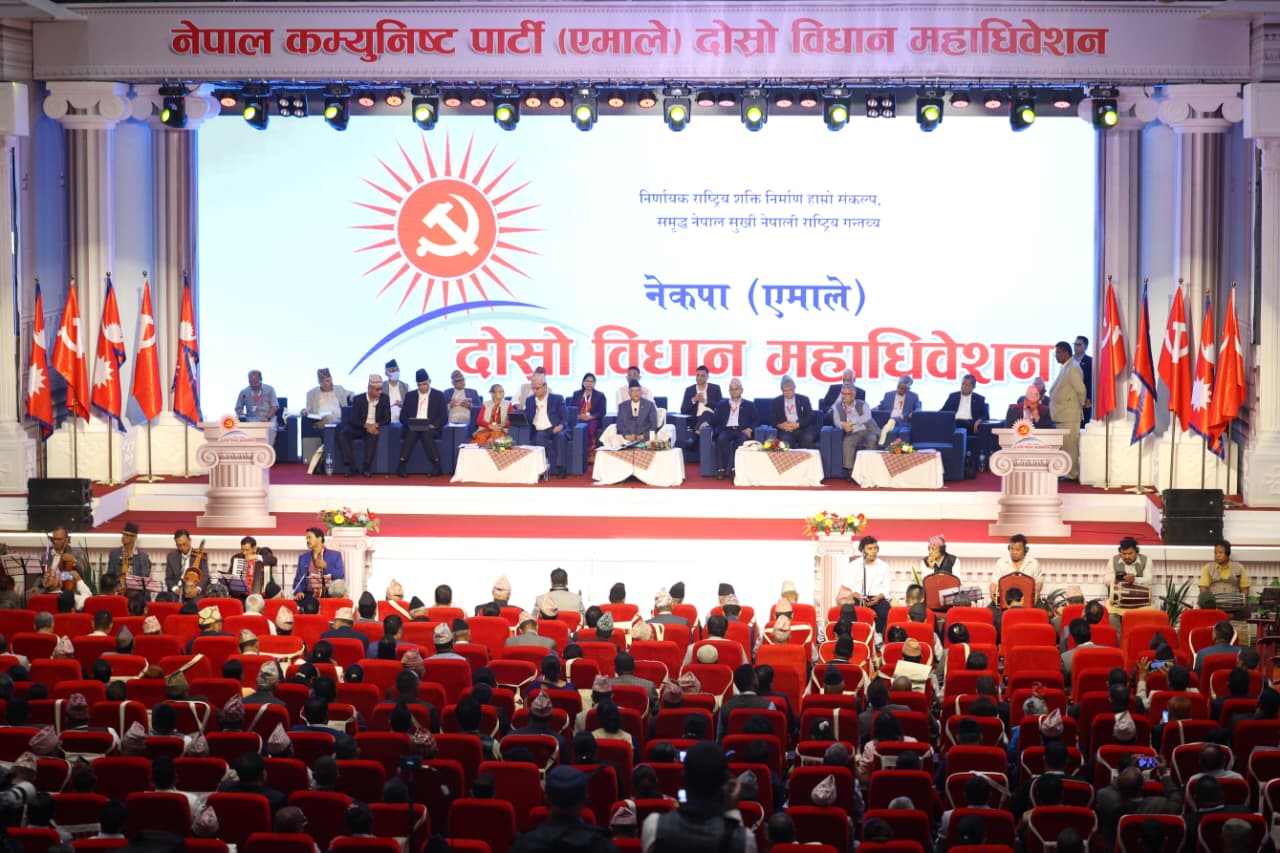

KATHMANDU: The CPN-UML has proposed sweeping amendments to its party statute during the second statute convention in Lalitpur, aiming to restructure the leadership hierarchy, streamline central bodies, and strengthen the authority of the party chairperson.
The proposal, presented by Vice Chairperson Bishnu Prasad Paudel and already endorsed by the UML Central Committee, recommends downsizing the central committee from the existing 301 members to 251, including 15 office bearers.
One of the most notable changes is the removal of the senior vice-chairperson post. Likewise, the number of vice-chairpersons will be reduced from six to three.
Under the new framework, the party will have one chairperson, three vice-chairpersons, one general secretary, three deputy general secretaries, and seven secretaries, with at least one of the office bearers required to be a woman.
The proposal also introduces significant reforms to the party’s decision-making structures. The existing 45-member Standing Committee will be replaced by a smaller 15-member committee composed only of office bearers.
Similarly, the current 99-member Politburo will be cut to a maximum of one-third of its present size, with members chosen through an internal election process.
Alongside this restructuring, UML’s central bodies will expand from seven to eight, now including the National General Convention, Policy Convention, National General Convention Representative Council, Central Committee, Central Disciplinary Commission, Central Accounts Commission, Central Election Commission, and Central Advisory Council.
Both the Politburo and Standing Committee will fall under the Central Committee. Another symbolic change is the renaming of the “statute convention” in Article 15 to the “policy convention,” indicating a shift in focus from structural rules to broader policy orientation.
The authority of the party chairperson has also been significantly enhanced under the amendment. Revised Articles 21(1)(c) and (d) empower the chair to lead central branches, present political reports, propose agendas, preside over meetings, validate decisions, and issue directives.
The chair will also have the authority to instruct the general secretary to convene meetings of the Central Committee, Politburo, and Standing Committee.
In a notable institutional shift, the existing party secretariat and central office—once influential organs of the UML—have been dissolved.
Their responsibilities will now be carried out by the general secretary, but strictly under the direct instruction of the party chairperson, further consolidating the power of the top leadership.